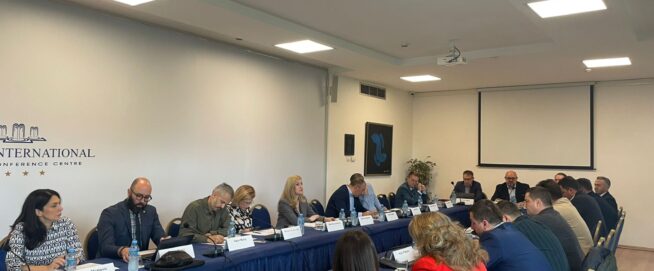
News
 Tirana, Albania
Tirana, Albania ADVANCING REGIONAL SECURITY COOPERATION IN THE WESTERN BALKANS

On October 6, 2025, the Council for Inclusive Governance (CIG) convened a regional roundtable in Tirana, Albania. The discussion brought together senior politicians from the six Western Balkan countries to explore ways to advance regional security cooperation, with a focus on building both domestic and regional consensus around EU reforms. The roundtable was part of a CIG regional project supported by the German Federal Foreign Office (AA). The event continued the dialogue initiated at previous discussions within the project, particularly the Budva roundtable in May 2025 and the Skopje roundtable in July 2025.
The discussion focused on issues related to security in the region at a time of deeper global polarization, rampant wars in the wider neighborhood of the European Union (EU), new security threats, the retreat of the United States from Europe, the cracks in the transatlantic alliance, and foreign meddling in the region. Participants agreed that the Western Balkans still consumes security instead of producing it. The region, they said, should be a contributor, not a liability. The roundtable aimed to identify key security challenges, risks, and threats, as well as to offer possible answers on how to strengthen effective regional security cooperation. Participants outlined the persistence of the remnants of the conflicts of the 1990s, the challenges they pose, and why they remain so present in public discourse, hindering opportunities for greater regional security cooperation. They also emphasized that the Western Balkans do not exist in a vacuum and that many threats and challenges are cross-border—both within the region and between it and the EU. Many noted that the EU, facing crises with Russia and China needs the region’s help—not more competition for attention. The Western Balkans should offer a contribution to European stability, not demand it.
The report below captures the main themes and insights from the discussions, offering key takeaways from the debate and providing conclusions and recommendations that are not based on consensus and do not necessarily reflect the views of CIG or AA. The roundtable was held under the Chatham House Rule. The report was prepared by Igor Novakovic, CIG’s Senior Associate.








